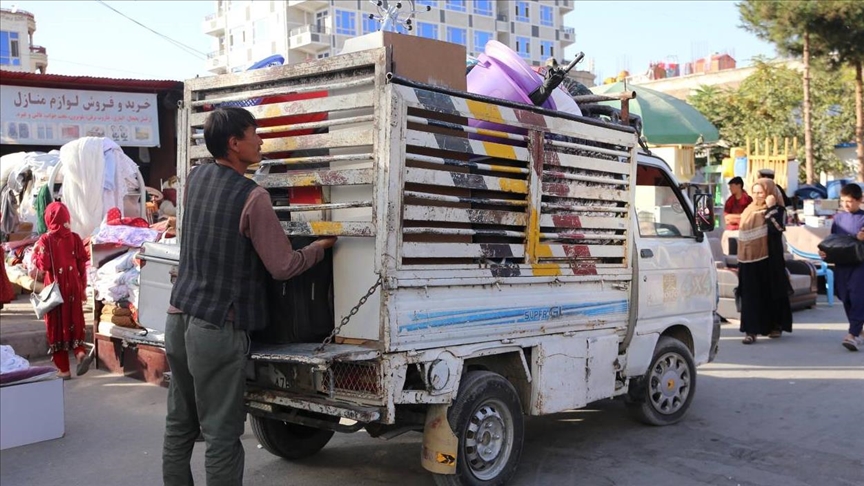People selling household items amid rising poverty in Afghanistan
Cash shortage, unemployment, cut in international aid main factors escalating economic crisis
 A view from a second hand bazaar in Afghan capital Kabul on September 15, 2021. The increasing economic crisis following the Taliban takeover causes low-income Afghans to sell their household goods. In the country, the banks were closed for about two weeks, they could not keep up with their cash needs, and the Afghan people, who were faced with increasing unemployment and poverty, start to sell their household goods on the second-hand market. ( Bilal Güler - Anadolu Agency )
A view from a second hand bazaar in Afghan capital Kabul on September 15, 2021. The increasing economic crisis following the Taliban takeover causes low-income Afghans to sell their household goods. In the country, the banks were closed for about two weeks, they could not keep up with their cash needs, and the Afghan people, who were faced with increasing unemployment and poverty, start to sell their household goods on the second-hand market. ( Bilal Güler - Anadolu Agency )
KABUL, Afghanistan
As life limps back to normalcy in the capital Kabul, low-income Afghans are seen selling their household items in the second-hand goods market due to an escalating economic crisis after the Taliban's takeover of Afghanistan last month.
After the fall of the Afghan government on Aug. 15 and the consequent closure of banks for about two weeks that created a cash shortage, the Afghan people faced increasing unemployment and poverty and were forced to sell their household items.
Sofa sets, carpets, kitchenware, old television sets, sewing machines, and used rugs as well as beds from the 1990s are among the products on sale in the second-hand goods market.
Traders working in the market in the Proja-e-Taimany locality in north-western Kabul said the inability of banks to meet people’s cash needs, unemployment of former government employees, and a decrease in international aid are the factors escalating the economic crisis in the country.
“People are selling their stuff. Their concern is not to flee the country, but to buy a bite of bread. They are doing this because of a lack of money,” a shop owner, Sirajeddin Ahmedi, told Anadolu Agency.
“When we look at other countries, they are at peace and developing. Our future is uncertain because of desperation and poverty. All people want to go to foreign countries because of security problems,” said another shopkeeper, Mansur Ganizade.
The World Bank, International Monetary Fund (IMF), and the US Central Bank have already blocked Afghanistan's access to international funds due to a lack of clarity on the country's governance structure in recent weeks.
The UN, in a report published last week, warned that more than 97% of Afghanistan's population could fall below the poverty line by mid-2022.
Some 40% of Afghanistan's GDP came from international aid for the past 20 years.
As many countries refused to recognize the Taliban’s government, experts warned the country is rapidly moving towards an economic disaster. The Taliban last week announced a 33-member interim Cabinet.
*Writing by Zehra Nur Duz








